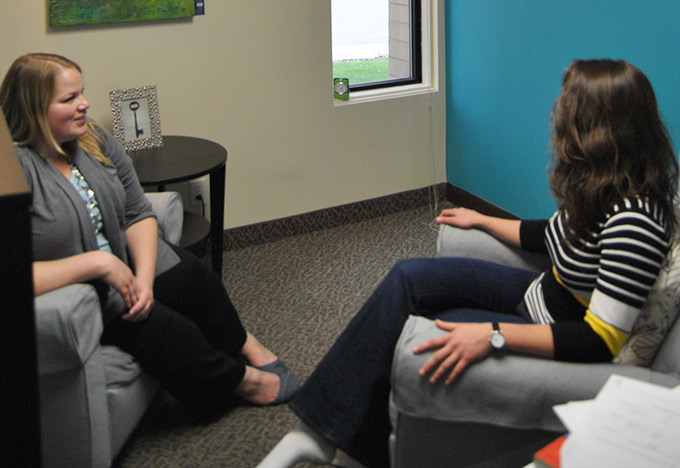Wondering what counselling is or who it’s for? A Calgary Counselling Psychologist answers some of the common questions regarding counselling:
Who goes to a counselling session?
We see people from all walks of life in counselling. Many who access counselling are those who are functioning well in everyday life but who might need some support in one, two, or a few areas. We frequently see people who are looking for help with stress management, relationship difficulties (romantic, friendship, family), transitions (divorce, change in job, going to school, moving), depression, anxiety, grief/loss, identity, confidence, self-esteem/self-compassion, assertiveness, boundaries, and many more.
When we feel ourselves struggling, it can be useful to speak to someone who will listen to your experience, provide support about your concern, and offer perspective and information, and a space to practice and hone new skills.

What is involved in counselling? What should I expect in a counselling session?
Each person and each session may be different, but a counselling session always involves an opportunity to speak with an individual who is trained to assist you in exploring your concerns and in finding ways to help you make sense of it and to feel better.
During the session, a psychologist will ask questions that will encourage you to explore the concern that brought you to the appointment – this might include a discussion of your thoughts, perceptions, and feelings. By asking these types of questions, you can gain a better understanding of your concern and determine ways in which you might find some relief. You will be encouraged to share only what you feel comfortable sharing, and your comfort level will be very important in determining what is talked about.
During the session, we will also discuss strategies that might help. These strategies come in many different forms, but the basis for each strategy is well supported in the research in the area of your concern.
How does counselling help?
Counselling is a highly individualized process and each person brings with them unique questions and goals so each person experiences it in slightly different ways. However, in general, counselling provides people an opportunity to speak freely and openly with an empathetic and nonjudgmental person. When we are going through a difficult time, it is easy to get lost in our own perspective. By discussing the situation with me, you will have an opportunity to identify different perspectives that will help ease some of the discomfort you are experiencing. I am trained to ask the types of questions that allow you the opportunity to express yourself and explore what is working for you and what is not, look for patterns, and identify specific areas where a change might help provide relief. Together, we will explore ways to manage emotions in a way that works for you, identify and communicate needs more effectively, understand how you can be empowered to enact change in your life and discuss strategies to do so.
The benefit of making small changes in your life is that they tend to have a ripple effect. For example, if you are better able to manage anxiety, you might notice that you sleep better, you have more patience for your coworkers/partner/children, and you might begin to enjoy the small pleasant moments in life again.
When should I book a counselling session?
Sooner is better than later, most of the time: counselling is one option for addressing your concerns, and seeking counselling in a timely manner is often beneficial in the long run. Since mental health and functioning can have a significant impact on how we function in our day-to-day lives as well as other areas of health (including physical health), people often find that taking steps early to get help is beneficial.
